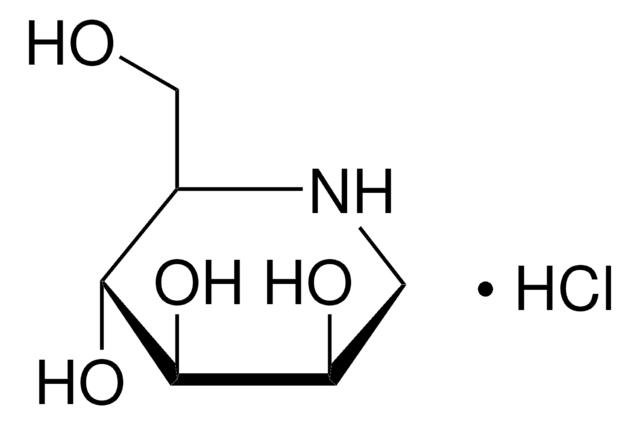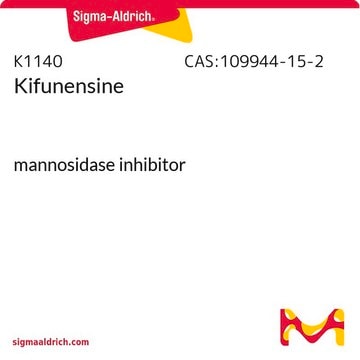S8195
Swainsonine
from Metarrhizium anisopliae, ≥98% (TLC)
Synonym(s):
(1S,2R,8R,8aR)-1,2,8-Octahydroindolizidinetriol
About This Item
Recommended Products
biological source
Metarrhizium anisopliae
Quality Level
Assay
≥98% (TLC)
form
lyophilized powder
storage condition
(Keep container tightly closed in a dry and well-ventilated place.)
color
white to faint yellow
solubility
H2O: soluble 1 mg/mL
antibiotic activity spectrum
neoplastics
Mode of action
enzyme | inhibits
storage temp.
2-8°C
SMILES string
O[C@@H]1CCCN2C[C@@H](O)[C@@H](O)C12
InChI
1S/C8H15NO3/c10-5-2-1-3-9-4-6(11)8(12)7(5)9/h5-8,10-12H,1-4H2/t5-,6-,7?,8-/m1/s1
InChI key
FXUAIOOAOAVCGD-DCDLSZRSSA-N
Looking for similar products? Visit Product Comparison Guide
Related Categories
Application
Biochem/physiol Actions
Packaging
Preparation Note
Other Notes
Storage Class Code
11 - Combustible Solids
WGK
WGK 3
Personal Protective Equipment
Certificates of Analysis (COA)
Search for Certificates of Analysis (COA) by entering the products Lot/Batch Number. Lot and Batch Numbers can be found on a product’s label following the words ‘Lot’ or ‘Batch’.
Already Own This Product?
Find documentation for the products that you have recently purchased in the Document Library.
Customers Also Viewed
Our team of scientists has experience in all areas of research including Life Science, Material Science, Chemical Synthesis, Chromatography, Analytical and many others.
Contact Technical Service








